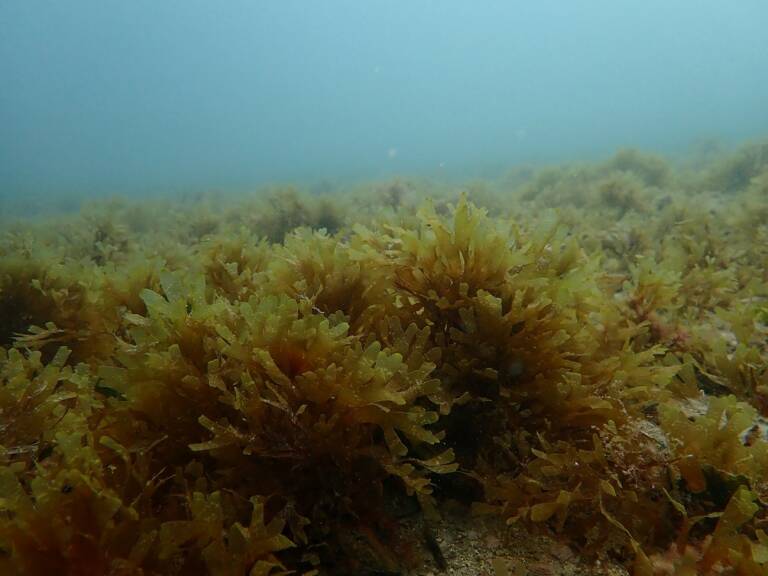ALICANTE UNIVERSITY marine scientists have logged the first sightings of an invasive type of algae in Costa Blanca waters as well as on beaches.
Known as ‘Rugulopteryx okamurae’ it has been dubbed as ‘Asian algae’ because it is prominent in the Asian Pacific area.
In Spain, it first appeared on the beaches of Ceuta at the end of 2015 and has spread throughout the Alboran Sea, where experts say it has shown a great colonising capacity, negatively affecting native marine species, as well as on fishing and tourism.
Alicante scientists say it can form large accumulations on beaches, which can be difficult to manage and remove,
The Asian algae was detected in Alicante area waters in March and in great abundance in the centre of the bay of Alicante as it grows mainly on the dead forest of ‘Posidonia oceanica’ that abounds in the area.
In a statement, the marine experts said: “We have found large quantities of the algae accumulating on some nearby beaches such as San Gabriel and Urbanova in Alicante but also on other tourist beaches further away, such as Arenales del Sol and coves of Cabo de Santa Pola, as it has been dispersed by waves and sea currents.”
Their studies have confirmed the expansion of the Asian algae in the Mediterranean Sea and the scientists have stressed the importance of carrying out follow-up studies to study the variation of its abundance over time in the sites already colonised and detect its expansion to nearby areas.
The Alicante University team says more research is needed to evaluate its potential effect on the native species of the coast and to implement measures to control its expansion.
READ MORE:
- Alien invasion: Asian algae taking over Spanish waters
- €4.7 million to be spent in 2023 removing biomass from polluted Mar Menor in Murcia








